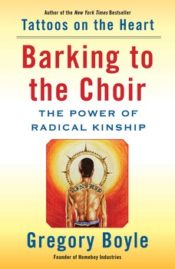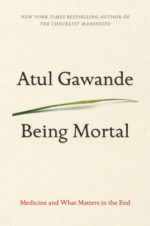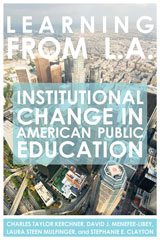Jumping from One Reform Horse to Another
Posted on | December 12, 2011 | Comments Off on Jumping from One Reform Horse to Another
I penned this last week in advance of the trigger budget cuts that are likely to hit the Los Angeles Unified School District later this week. Some Christmas present, kids.
In a new labor agreement that embraces local school autonomy, Los Angeles Unified School District superintendent John Deasy has jumped from one school reform horse to another.
He dismounted from the Public School Choice horse, thus ending the era when the school district sought to improve schools through robust competition between district-run school management teams, charters, and other complex operating arrangements. Under what has been called “portfolio” logic, the school district would assemble the best collection of schools it could, putting underperforming ones up for competitive bids while encouraging the ones that were doing well.
The labor agreement now being voted on virtually ends Public School Choice. For the next three years, no charters or external school management organizations can apply, and the district is forbidden to reconstitute a school making what the agreement calls but does not define as “reasonable progress.”
Deasy and United Teachers Los Angeles president Warren Fletcher saddled up a new filly—the daughter of school reforms past—called decentralization. The underlying logic is that diversity in approach to schooling is good, that many different models of instruction are needed, and that teachers and administrators know best how to design schooling and to self-regulate their jobs.
They were right to get off the old horse. It was dead or at least hobbled. The 2009 Public School Choice resolution offered by former board member Yolie Flores was an audacious idea, but political push back tied its legs from the beginning. Its racing life was short. In the first round of applications, the school board rejected Superintendent Ray Cortines’ recommendations and awarded none of the newly constructed schools to charters. The persistently underperforming schools, which had been ordered to write competitive proposals, largely competed against themselves. Few charter or external organizations sought to run them. Conventional wisdom in the charter world is that taking over existing public schools is too fraught with pain and difficulty to be worth the effort; better to start new.
However, the new decentralization horse does not have a good track record. LAUSD rode this horse hard during the 1990s, and both Deasy and Fletcher could learn from that trial.
The 1990s decentralization horse didn’t get fed enough. Schools that joined the LEARN project were promised budgetary flexibility, which largely never appeared, and added funding, which dried up after a few years.
There may be no food at all for the new decentralization mount. While the labor agreement promises formative assistance for struggling schools and help for planning newly decentralized ones, the state budget shortfall, with more in store next week, may truly empty the food bag.
The 1990s decentralization horse often didn’t know where the finish line was. LEARN training focused more on adult process skills than hard-core analytics about student achievement. There was no agreement about how to measure the outcomes the schools wanted, and for most of the period California lacked statewide measurements.
The same ambiguity applies now. Will the decentralized schools be judged only by the state’s Academic Performance Index? Will teachers be evaluated by how much they contributed to test score increases? Teachers in general and UTLA in particular loathe so-called “value added” measurements, but they have not proposed an alternative. The expectations for decentralized schools, the means of evaluating them, and the consequences are all up for grabs. Without a finish line, the new school reform horse is likely to spend its time chewing the infield grass as galloping on the track.
The 1990s school reform horse had inconsistent trainers. Teachers and principals attended sometimes extensive workshops and residencies. (Palm Springs in July. Bring gloves; your steering wheel will be too hot to touch.) They learned the process rudiments of what was called a professional learning community. But these schools were isolated within the larger LAUSD and UTLA organizations. The idea of teacher leadership was rejected by the administrative establishment as improper and by union activists as not being tough minded enough.
The 1990s school reform horse had a short season at the track. LEARN was approved by the school board in 1993 and got underway the following year. By 1999, the race was over. External supporters grew frustrated with LAUSD, and they moved on to foster charter school development, particularly those now called the Alliance Schools. Opposition in the district, school board, and union increased. Victory was declared, but the season ended.
Fletcher and Deasy may have saddled up a better horse. Using the union contract as a reform document gives reform a stable home. Contracts last longer than superintendencies or a union president’s term, and they are good at patterning behavior. Still, neither union nor district could resist the temptation to mire their new ideas on a slow muddy track of committee approvals, school votes, plan documents, and more approvals. It may never get to the starting gate.
I don’t know whether this horse will run, but I’m putting down my bet. See you at the $2 window.




